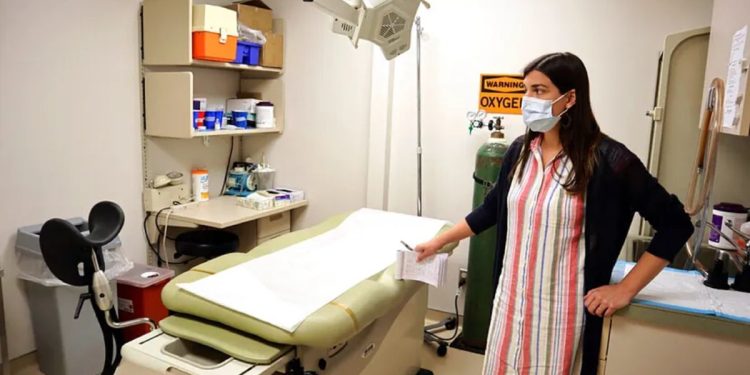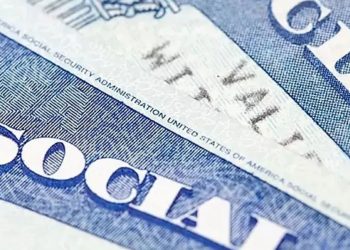As lawmakers in Washington, D.C. deliberate over billions of dollars in proposed budget cuts related to tax reform and immigration policy, the future of two essential health programs—Medicaid and the Children’s Health Insurance Program (CHIP)—has once again become a focal point of public debate. With millions of Americans depending on these programs for healthcare coverage, any proposed cuts have sparked serious concerns among citizens and policymakers alike.
Medicaid and CHIP: Essential Safety Nets for Millions
Medicaid, along with CHIP, serves as a critical safety net for low-income families, children, seniors, and people with disabilities across the United States. Together, these programs provide health coverage to nearly 82 million Americans, ensuring that those in need have access to essential health services. Given the large number of individuals who rely on Medicaid and CHIP, any efforts to reduce funding or modify eligibility requirements could have widespread consequences.
The programs are funded through a federal-state partnership, where the federal government provides matching funds to states that administer Medicaid within federally established guidelines. The Affordable Care Act (ACA) expanded Medicaid eligibility, allowing more low-income individuals to access coverage. As of today, 41 states and Washington, D.C. have adopted Medicaid expansion under the ACA, increasing the number of individuals eligible for the program.
Public Opposition to Medicaid Cuts
Recent polling data reveals that a majority of Americans oppose cuts to Medicaid spending. Public sentiment strongly favors protecting Medicaid from reductions, especially when considering the vulnerable populations it serves. Many Americans view Medicaid as a vital program, and the idea of reducing benefits or narrowing eligibility raises alarms about the potential impact on families, children, seniors, and individuals with disabilities.
Despite this public opposition, the discussion surrounding Medicaid funding continues in political circles. Some policymakers argue that budget cuts are necessary to balance the national deficit or fund other initiatives. However, with only a small portion of the public believing that Medicaid is overfunded, any proposed reductions are likely to face significant resistance.
High Medicaid Enrollment States: A Closer Look
Medicaid plays a crucial role in funding hospitals, health centers, and nursing homes across the country. States with high Medicaid enrollment numbers often depend on the program not just to provide coverage for individuals but also to sustain the local healthcare infrastructure.
Among the states with the highest Medicaid enrollment rates, New Mexico leads the pack, with over one-third (33.5%) of its residents enrolled in Medicaid or CHIP. Louisiana follows closely with 32.4% of its population relying on the program. Other states with high enrollment rates include New York, Kentucky, and West Virginia, each of which has around 28% of its residents enrolled in Medicaid or CHIP. California, despite its large population, has 26.8% of its residents dependent on Medicaid or CHIP.
Interestingly, high Medicaid enrollment is not confined to states with a specific political leaning. While New Mexico and California, which have significant Democratic representation, lead the way in Medicaid enrollment, Republican-led states like Louisiana, Kentucky, and Alaska also rank high in terms of program participation. This bipartisan reliance on Medicaid demonstrates the program’s significance across political and geographical boundaries.
The Political Divide on Medicaid
The stark contrast between red and blue states when it comes to Medicaid enrollment highlights the complex nature of healthcare politics in the U.S. Medicaid enrollment rates vary widely between states, but the underlying need for the program remains consistent. States that have adopted Medicaid expansion under the ACA, regardless of their political affiliation, have seen a significant reduction in the number of uninsured individuals.
Alaska, a GOP-led state, ranks fourth in terms of Medicaid enrollment, with one in three residents relying on the program. Senator Lisa Murkowski, a Republican from Alaska, has publicly committed to defending Medicaid access in her state, showing that support for the program transcends party lines. This political diversity underscores the deep reliance on Medicaid in both rural and urban areas across the country.
The Stakes for Medicaid Recipients
As Congress debates potential budget cuts, the stakes for Medicaid recipients have never been higher. Proposed changes such as introducing work requirements or scaling back federal funding could severely affect millions of families and individuals who rely on Medicaid for their healthcare. These changes could also place significant strain on state health systems, which already struggle with funding gaps and rising demand for services.
In addition to proposed budget cuts, there are concerns about changes to the way Medicaid operates. Some policymakers have suggested introducing work requirements for Medicaid beneficiaries, which could restrict access to healthcare for many individuals. While proponents of such measures argue that they would encourage employment and reduce dependency, critics warn that these changes would leave vulnerable populations without the care they need.
Conclusion: A Critical Decision for the Future
The future of Medicaid and CHIP is uncertain as lawmakers continue to debate budget cuts and potential reforms. The overwhelming public opposition to cuts to these vital programs, combined with the deep dependence on Medicaid in states across the nation, suggests that any changes could have far-reaching consequences. Medicaid is not just a healthcare program; it is a lifeline for millions of Americans. As the debate continues, the challenge will be balancing the need for fiscal responsibility with the essential role Medicaid plays in ensuring access to healthcare for the nation’s most vulnerable populations.











